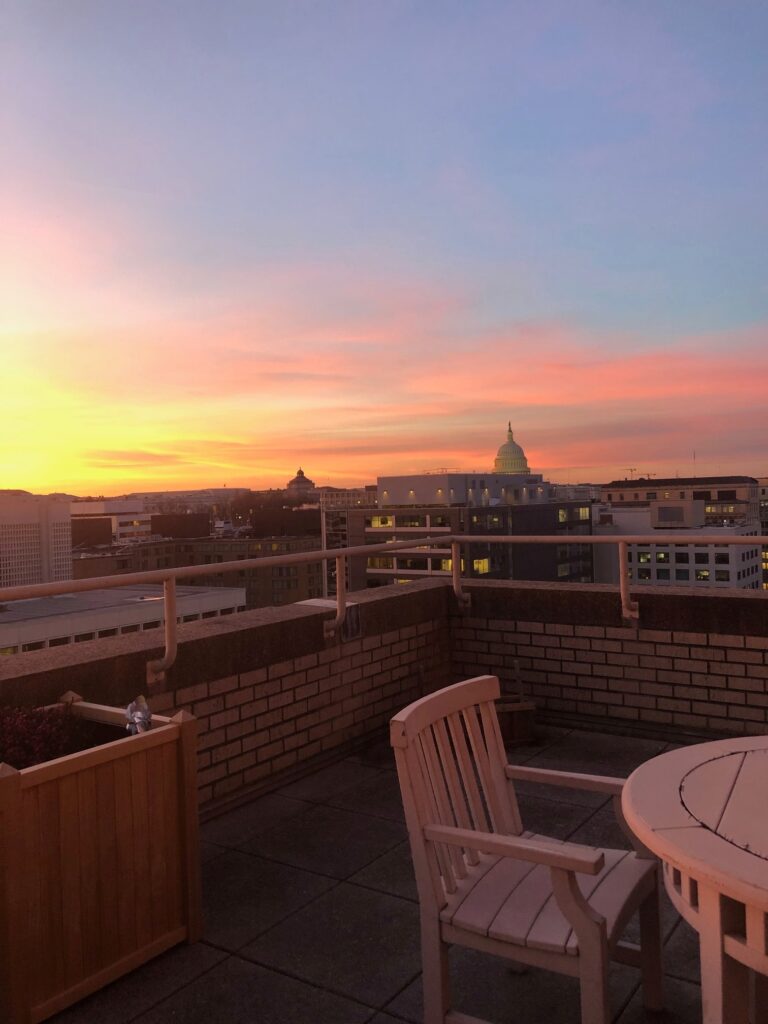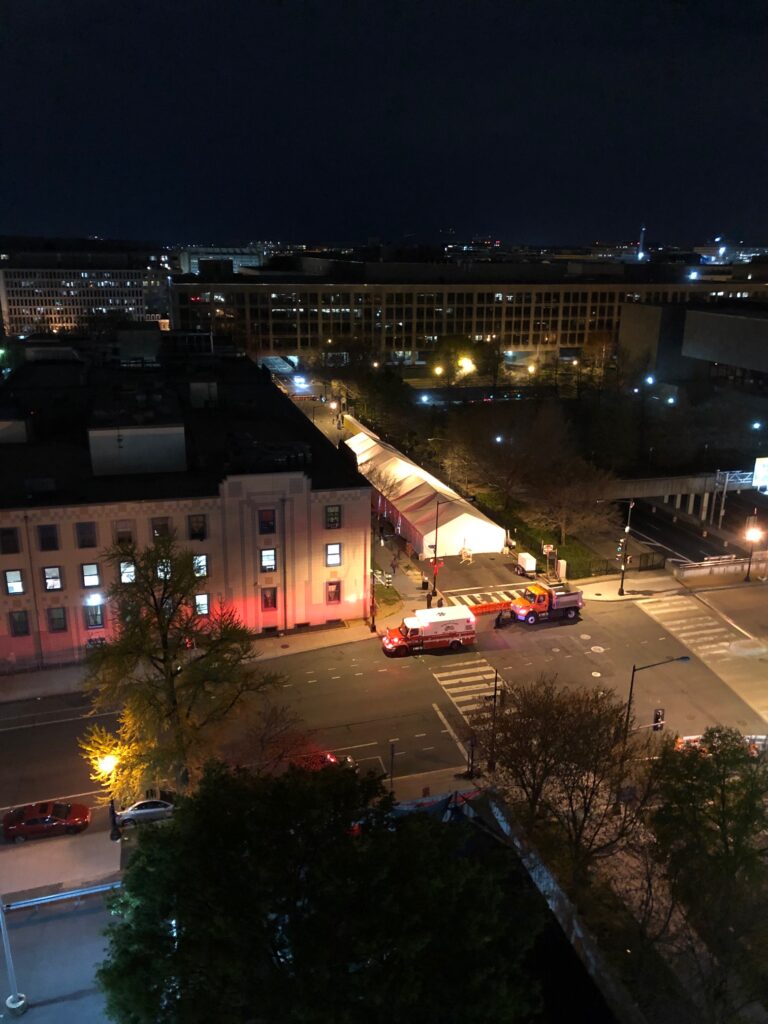This week’s post comes from Mary J. Novak, associate director for Ignatian Formation for SCS & the Law Center, and adjunct professor of Law. Mary also serves as Chaplain-in-Residence in the Gewirz Residential Community located on the Law Center’s Capitol Hill Campus.
Talking to students, staff, and faculty at any Jesuit institution, I will often use the word “vocation.” To some ears, this language is familiar and serves as an invitation to a deeper conversation. To others less familiar with Ignatian language, I will see the slight furrowing of the brow.
If I am quick on my feet, I will say: “You know, the Frederick Buechner definition of vocation of ‘where your deepest desires meet the world’s greatest needs and the community confirms your call,’ therein you will find your vocation.” Buechner is much more eloquent than I am, saying, “The place God calls you to is the place where your deep gladness and the world’s deep hunger meet.”

It is Buechner’s definition of vocation that Jamie Kralovec and I use to end the SCS student retreats (pictures of which Jamie included in his last blog post). Buechner says this (and please pardon the gendered language):
“IT COMES FROM the Latin vocare, to call, and means the work a man is called to by God.
There are all different kinds of voices calling you to all different kinds of work, and the problem is to find out which is the voice of God rather than of Society, say, or the Super-ego, or Self-Interest.
By and large a good rule for finding out is this. The kind of work God usually calls you to is the kind of work (a) that you need most to do and (b) that the world most needs to have done. If you really get a kick out of your work, you’ve presumably met requirement (a), but if your work is writing TV deodorant commercials, the chances are you’ve missed requirement (b). On the other hand, if your work is being a doctor in a leper colony, you have probably met requirement (b), but if most of the time you’re bored and depressed by it, the chances are you have not only bypassed (a) but probably aren’t helping your patients much either.
Neither the hair shirt nor the soft berth will do. The place God calls you to is the place where your deep gladness and the world’s deep hunger meet.”
In higher educational settings, we so often focus on the first part of this definition of vocation, what the student needs most to do. During this pandemic, I know I am not alone in focusing more and more on the second part of Buechner’s definition, what “the world most needs to have done” and I wonder if the order of these questions needs to change.
This pandemic reveals more fully than ever in my lifetime that our systems and society do not value all life, especially the lives of those who have been historically marginalized, the materially poor and the most physically vulnerable. The raging pandemic has revealed our systemic operative racism, ageism, classism, toxic nationalism, etc. in ways that are stark and hard to ignore.

Last month in the Financial Times, Arundhati Roy called this moment in our world history a “portal,” saying:
“Historically, pandemics have forced humans to break with the past and imagine their world anew. This one is no different. It is a portal, a gateway between one world and the next.”
Can we imagine our world anew? What does the world most need to have done to get there? And only when we answer that question can we ask: what do you/I/we most need to do? This is the treasure of our Jesuit Heritage: not only can we ask these questions in this setting, but we can lean into discerning them together as community to build a better world in the common good.
